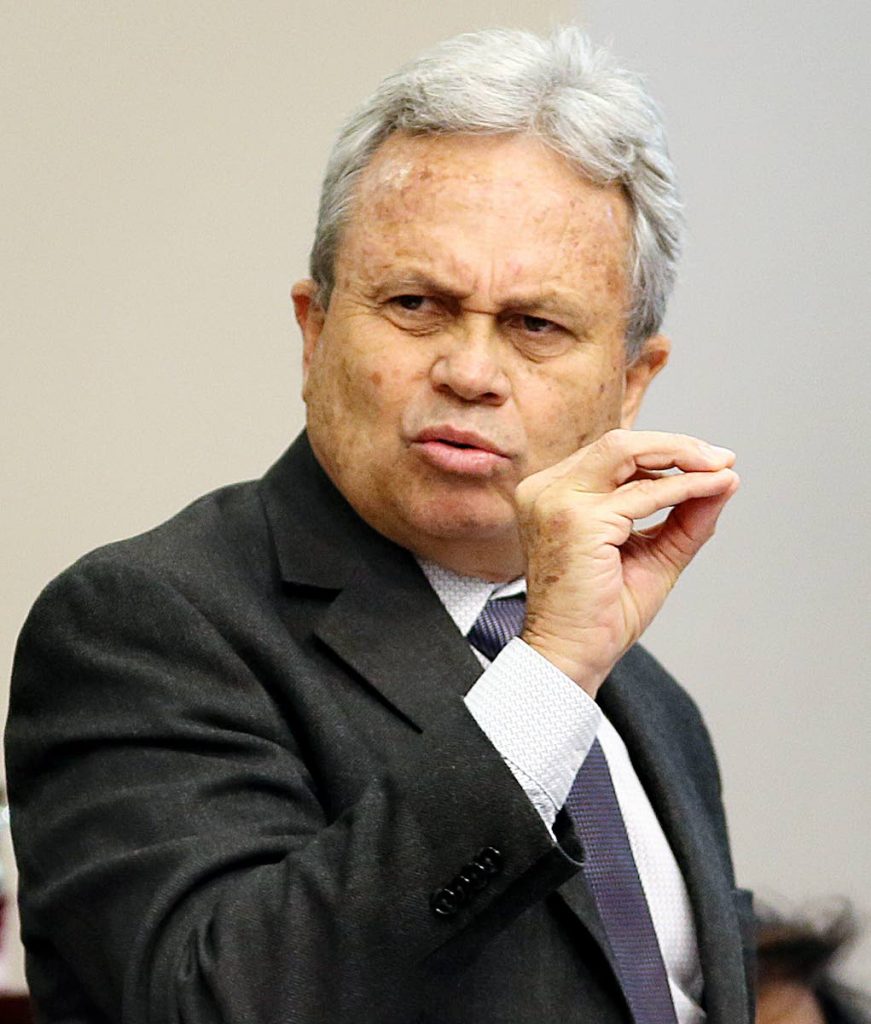Colm: PP hid billions in refinery losses

FINANCE Minister Colm Imbert last night alleged that the former People’s Partnership (PP) government had deliberately tried to hide losses incurred by the Pointe-a-Pierre Refinery which had amounted to $11 billion from 2012 to 2017.
He sought to correct “quite a bit of inaccurate information” in the public domain on Petrotrin, speaking at a People’s National Movement (PNM) public meeting titled Resurgence of Petrotrin at Marabella Community Facility in the Pointe-a-Pierre constituency.
While Petrotrin overall had once made small profits of $885 million and $150 million, by 2015 it had lost $1.04 billion and in 2016 lost $5 billion. Separating refinery exports from the sale of crude oil, Imbert said the refinery lost $722 million in 2012, $2.3 billion in 2013, $2.6 billion in 2014, $2.7 billion in 2015, $1.3 billion in 2016 and $1.7 billion in 2017, he said
He alleged the former administration hid these refinery losses by “creative accounting.”
“They were not recording these losses in the books as losses but as an advanced tax. They were hiding that in a corner.”
Imbert said on taking office, the PNM government was told to post those losses, which had come as a shock to them. All these accumulated past losses were then posted under one year. He said all Petrotrin’s honchos had known the refinery was losing $2 billion per year, and was sucking in profits from the exploration side of Petrotrin’s operations.
The refinery had contributed only losses, he said.
“We brought in external auditors to interrogate the company’s auditor and accountant and find out what was going on.” He said the experts, charted accountants, said the refinery “would never make a profit.”
Imbert said that over successive years the refinery was losing money but this was being masked by Petrotrin’s profits from selling crude oil. For example in 2014, despite a $2 billion loss in the refinery, Petrotrin had declared a $150 million profit. He calculated Petrotrin’s typical annual profit from the sale of oil as about $6 billion.
“It is a fallacy the refinery has been contributing to Petrotrin and paying workers salaries and paying their health plan.” He said from the time the refinery is closed, Petrotrin will become a profitable company, with its profits to be used to pay workers their salaries and retirees their benefits, and to pay Petrotrin’s debts.
Imbert said Petrotrin owes the Board of Inland Revenue $2.6 billion in taxes, and owes royalties to Energy Ministry $1.4 billion, a total of $4 billion owed to the State. He said the Government’s fuel subsidy to Petrotrin is just $1 billion, so Petrotrin owes a net of $3 billion. He observed a big hole in oil companies payments to the Government, including $900 million owed by Petrotrin. “We have not received a cent from Petrotrin this fiscal year,” he said, noting other, private oil firms had paid. His ministry has had to scrimp and save to cope with that hole, such as to fund schools.
He said despite Petrotrin’s non-payment, the Government has to guarantee any borrowing by Petrotrin, which buys 100,000 barrels of oil per day to run the refinery, at US$60 per barrel. About US$3 is lost on every barrel refined, he lamented.
Imbert vowed his ministry would help Petrotrin workers to make the company’s transition as easy as possible.


Comments
"Colm: PP hid billions in refinery losses"